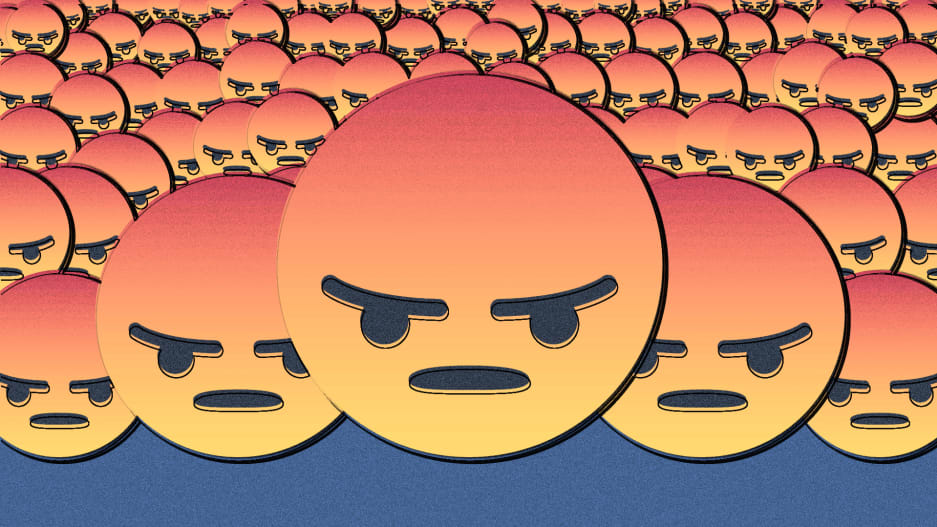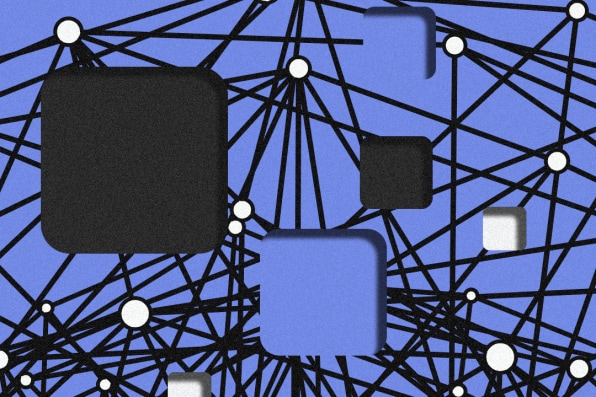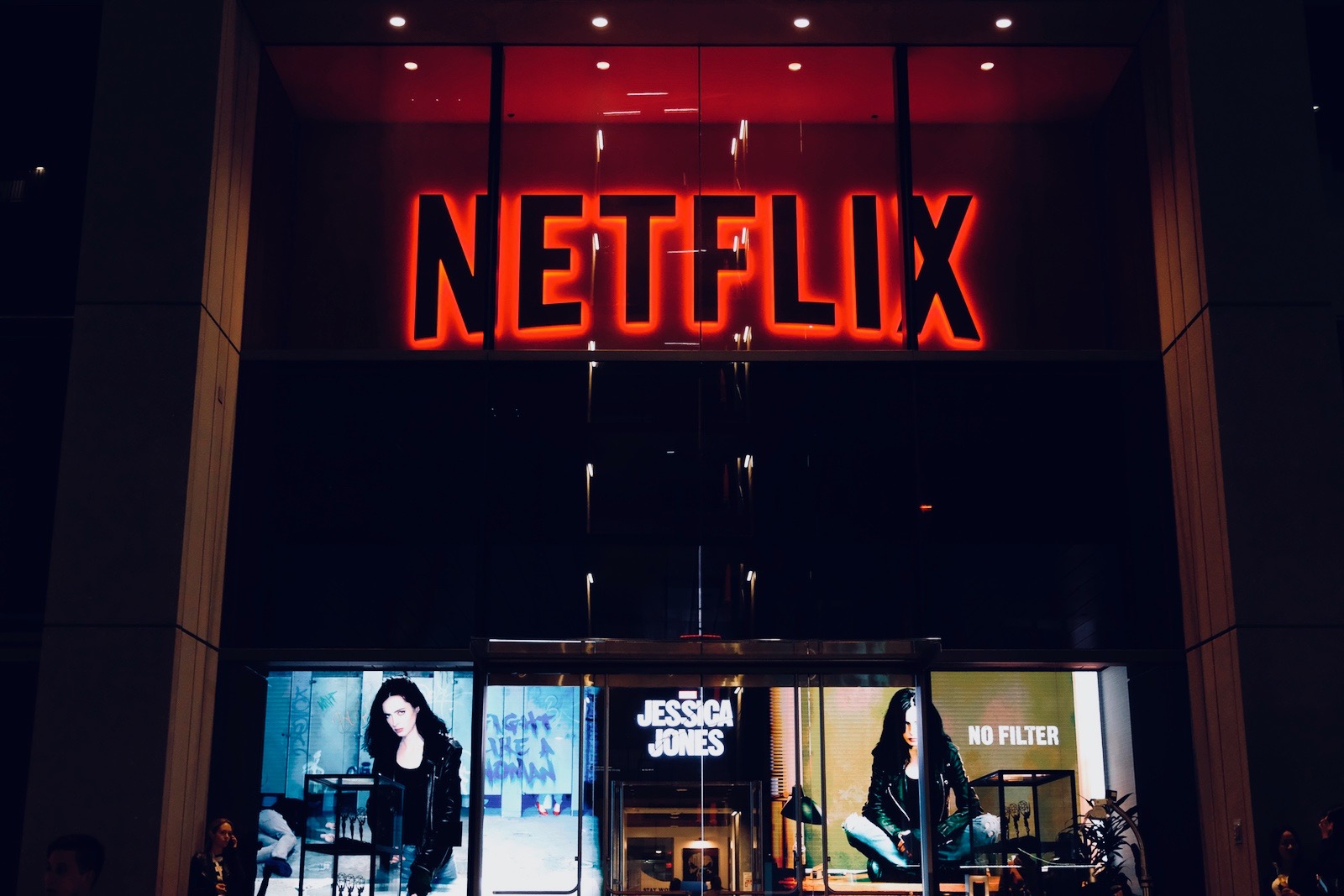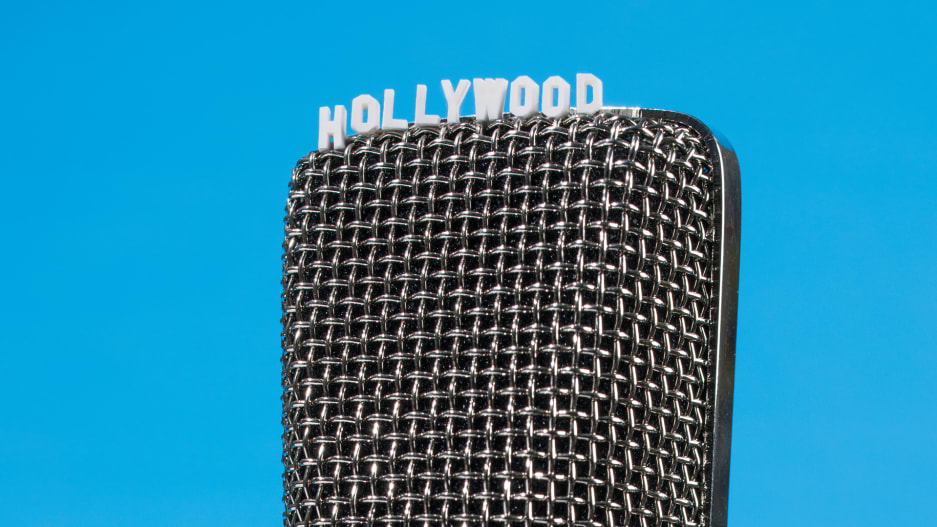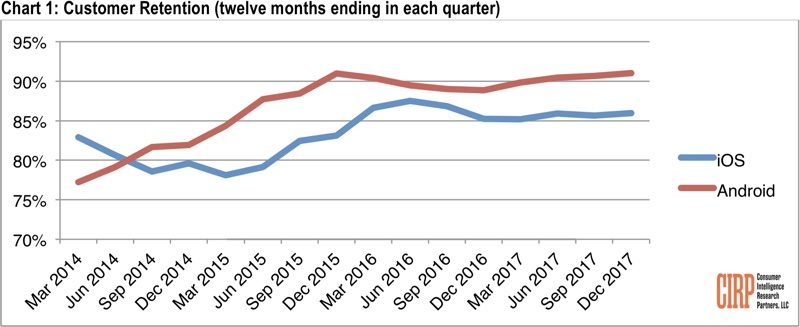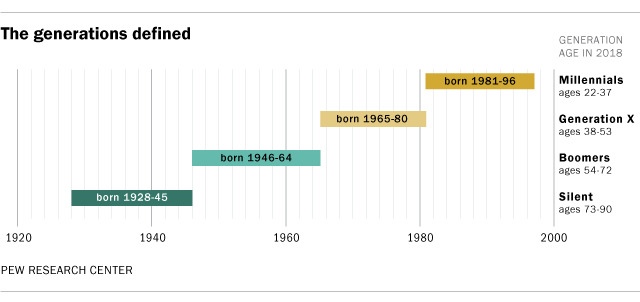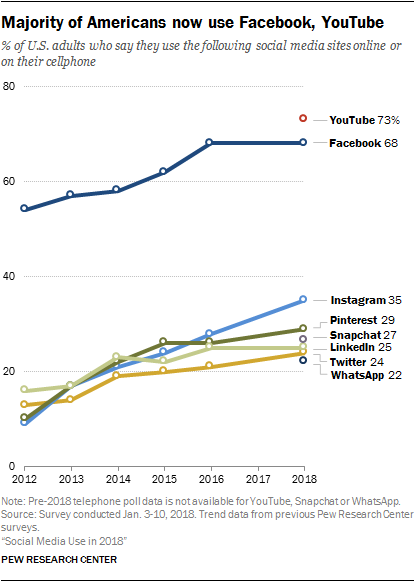The biggest Black Lives Matter page on Facebook is fake
For at least a year, the biggest page on Facebook purporting to be part of the Black Lives Matter movement was a scam with ties to a middle-aged white man in Australia.
Source: The biggest Black Lives Matter page on Facebook is fake
Facebook’s Other Critics: Its Viral Stars
As Facebook reels from a privacy scandal, some of its most popular users are lashing out over declining traffic, policy changes and financial complaints.
Source: Facebook’s Other Critics: Its Viral Stars – The New York Times
Leap Motion’s “Virtual Wearables” May Be The Future Of Computing
“We are on the verge of a new era of human-computer interaction,” says Keiichi Matsuda, Leap Motion’s VP of design and global creative director.
Source: Leap Motion’s “Virtual Wearables” May Be The Future Of Computing
How Long Can Instagram Distance Itself From the Facebook Backlash?
A recent Verge survey discovered that 60 percent of respondents didn’t know Facebook owns Instagram, and Google searches containing the question “Does Facebook own Instagram?” reached an all-time high the week the Cambridge Analytica story broke. Comparing the two platforms, you can see why people might not assume they’re connected. Facebook presents as a minefield of circa-2007 “wall posts” and comment threads in which distant friends and relatives reveal themselves to be conspiracy theorists. Instagram, on the other hand, is a relatively simple experience. There are no features that automate nostalgia, no trending topics or sprawling groups—just a stream of carefully edited flat lays, food, and matcha latte foam art. The less cute ephemeral content is relegated to Instagram Stories, which disappear after 24 hours. Text on the platform is minimal compared to Facebook, and comes in the form of intentionally opaque captions and comments. Overall, a relatively low-fi image-centric medium just feels safer.
Source: How Long Can Instagram Distance Itself From the Facebook Backlash? – The Ringer
Facebook said the personal data of most of its 2 billion users has been collected and shared with outsiders
Facebook said Wednesday that most of its 2 billion users likely have had their personal information scraped and shared by third-party developers without their explicit permission.
See also: Accessing Your Facebook Data
Spotify Subscriptions Helped The Streaming Company Win Listeners
The streaming company proved it could get the Napster generation to pay for music. But will Spotify’s paywall make it profitable?
Source: Spotify Subscriptions Helped The Streaming Company Win Listeners | WIRED
Instagram stops support for Apple Watch
Instagram is bailing on Apple Watch. Slack, eBay, Amazon, Google Maps, and Whole Foods have already abandoned the device. Companies are figuring out that they do not all need to be on a device with such a limited set of functions.
Source: Instagram stops support for Apple Watch – Business Insider
Mark Zuckerberg should quit as chairman, Facebook shareholder says
How an Acronym You’ve Probably Never Heard of Will Change TV Advertising Forever
What’s really going to kick the addressable revolution into overdrive is the rise of ACR (automated content recognition) data. If you’re unfamiliar, ACR is a technology used to automatically detect and index content that is playing on television in real-time. As a result, brands are able to use this information to determine when a given consumer sees their ad. As ACR data becomes more widespread, the sky’s the limit for addressable TV.
Source: How an Acronym You’ve Probably Never Heard of Will Change TV Advertising Forever – Adweek
Connecting Advertising: How Avid Podcasters Influence Purchasing Patterns
Podcasting continues to evolve as it engages and entertains growing audiences. And avid podcast fans can play a crucial role for marketers and advertisers looking to identify what’s next for this burgeoning medium.
Source: Connecting Advertising: How Avid Podcasters Influence Purchasing Patterns
Spotify Billionaires
As Spotify prepares to float itself on the stock market with a valuation of between $6-$20 billion, who will be receiving a slice of the cash?
Source: What Streaming Music Services Pay — Information is Beautiful
What Streaming Music Services Pay
How much do streaming apps like Spotify, Apple, Tidal and Pandora pay the music industry? How likely is it that a musician can earn minimum wage from streaming?
Source: What Streaming Music Services Pay — Information is Beautiful
RSS Readers Are Due for a Comeback
The difference between getting news from an RSS reader and getting it from Facebook or Twitter or Nuzzel or Apple News is a bit like the difference between a Vegas buffet and an a la carte menu. In either case, you decide what you actually want to consume. But the buffet gives you a whole world of options you otherwise might never have seen.
Source: RSS Readers Are Due for a Comeback: Feedly, The Old Reader, Inoreader | WIRED
The real threat to Facebook is the Kool-Aid turning sour
The more benign leaks merely cost Facebook a bit of competitive advantage. We’ve learned it’s building a smart speaker, a standalone VR headset and a Houseparty split-screen video chat clone.
Yet policy-focused leaks have exacerbated the backlash against Facebook, putting more pressure on the conscience of employees. As blame fell to Facebook for Trump’s election, word of Facebook prototyping a censorship tool for operating in China escaped, triggering questions about its respect for human rights and free speech. Facebook’s content rulebook got out alongside disturbing tales of the filth the company’s contracted moderators have to sift through. Its ad targeting was revealed to be able to pinpoint emotionally vulnerable teens.
In recent weeks, the leaks have accelerated to a maddening pace in the wake of Facebook’s soggy apologies regarding the Cambridge Analytica debacle. Its weak policy enforcement left the door open to exploitation of data users gave third-party apps, deepening the perception that Facebook doesn’t care about privacy.
Source: The real threat to Facebook is the Kool-Aid turning sour | TechCrunch
Hey, Alexa, What Can You Hear? And What Will You Do With It?
A diagram included with an Amazon patent application showed how a phone call between friends could be used to identify their interests. Credit United States Patent and Trademark
Amazon and Google have filed patent applications, many still under consideration, that outline how digital assistants can monitor more of what users say and do.
Source: Hey, Alexa, What Can You Hear? And What Will You Do With It? – The New York Times
Music Streaming Accounts for 65% of U.S. Music Revenues
This chart shows how important streaming has become for the music industry.
Source: • Chart: Music Streaming Accounts for 65% of U.S. Music Revenues | Statista
How Cambridge Analytica’s Facebook targeting model worked — according to the person who built it
How accurately can you be profiled online?
Why did fans leave LiveJournal, and where will they go after Tumblr?
A fascinating survey details the migration patterns of pop-culture obsessives.
Source: Why did fans leave LiveJournal, and where will they go after Tumblr?
Can Social Media Be Saved?
They exploit our data and make us unhappy. They spread misinformation and undermine democracy. Is salvation possible for social networks?
Apple updates the iPad for schools, but the price remains the same
Apple sent the iPad back to school, literally. At an event at Chicago’s Lane Tech High School on Tuesday, Apple unveiled a new model of its entry-level tablet designed to appeal to teachers and students.
The new iPad got a speed boost and support for Apple’s Pencil stylus, but keeps its familiar design and $329 price. The changes are welcome, but stop short of a full-on assault on the simple — and inexpensive — Google Chromebook laptops that have stolen Apple’s thunder in American schools.
Source: Apple Chicago event: New iPad announced at same price – The Washington Post
Spotify told Wall Street it is going to have a very good year in 2018
Spotify thinks it is going to do very well this year, by generating a big increase in revenue and paid subscribers, while improving its margins. And it thinks its losses will shrink. It would be surprising if Spotify didn’t have a good story to tell at this point. Its shares will start trading — via a “direct listing” instead of a traditional IPO, next Tuesday, April 3.
Source: Spotify told Wall Street it is going to have a very good year in 2018 – Recode
Admit It, You Don’t Really Understand Facebook
Whatever your position on the ethics of Facebook, the biggest challenge facing the world’s foundational social network right now is not #deletefacebook, data security, or PR punditry over whether Mark and Sheryl took too long to talk to journalists. It’s not even that the company has inadvertently been cast in history’s greatest spy drama–which just happens to be playing out on our TVs and in our news feeds and is the reason this story penetrated news cycles beyond tech media. (Despite all these things, business continues to boom.) Facebook’s real problem–its vulnerability–is the gulf that exists between people’s negligible understanding of its business model and what Facebook’s business really is.
The 4 Design Changes Facebook Should Really Make
“In my opinion, the biggest issue that Facebook needs to address is its business model that relies on data surveillance,” Ricks says. “Facebook is one actor in a complex web of data brokers, digital services, political organizations, social platforms, and financial institutions that have profited off the mass exploitation of people’s data. Until that changes, I worry that Facebook may just be making cosmetic fixes to its platform.”
Facebook Has An App Problem
An “app,” in the eyes of your average consumer, is something you literally download onto your phone or computer. It’s a piece of software in your possession. Implied in this mental model is a sort of containment. An app is like a caged tarantula we can take out now and again. But when we put it away, it stays put away, because no one wants to wake up in the middle of the night with a giant arachnid on their face.
When Facebook began allowing apps to connect with its service to expand what users could do on the social network in 2007, this model was destroyed overnight. You were no longer downloading a piece of software that you somehow owned or that you somehow could unplug. You were connecting to a service that lived on servers, an omnipresent entity that was always there and always watching, even after you long stopped tending those Farmville crops or responding to those Words with Friends requests.
Source: Facebook Has An App Problem
#DeleteFacebook becomes a movement as former Facebook insiders turn on the company
Things are getting worse for Facebook — WhatsApp co-founder Brian Acton jumped on the #DeleteFacebook bandwagon on Tuesday evening.
Google Maps’ Cool New Tool Turns Your Real City Into A Game
A globetrotting Mario game that features your block? A SimCity playing out in your hometown? GoogleMaps’ new API makes it possible.
Source: Google Maps’ Cool New Tool Turns Your Real City Into A Game
GM said to pilot peer-to-peer car sharing through its Maven brand
Automaker General Motors is said to be planning a new peer-to-peer car rental service, similar to existing offerings by Daimler-backed Turo and startup Getaround, to debut as early as this summer.
Source: GM said to pilot peer-to-peer car sharing through its Maven brand | TechCrunch
Youtube, Wikipedia team up to combat conspiracy theories
New from @YouTube – CEO Susan Wojciki announces a feature to fight conspiracy theories w/ related links to news, Wikipedia #sxsw pic.twitter.com/sLtjdQNqbu
— Maureen Fitzgerald (@movandy) March 13, 2018
Youtube CEO Susan Wojcicki announced at a SXSW panel the company’s plan to add Wikipedia information to videos pertaining to conspiracy theories.
Source: Youtube, Wikipedia team up to combat conspiracy theories – Business Insider
Fitbit Versa is a legitimate Apple Watch competitor for $200
Fitbit’s new Versa smartwatch can show you personalized workouts, store music, answer texts, and track your sleep.
Source: Fitbit Versa is a legitimate Apple Watch competitor for $200 – Business Insider
Netflix’s real advantage is that it’s a tech company first
Netflix hasn’t been coy about its plans to take over Hollywood. The company has already said it could spend up to $8 billion on content this year alone. But, for all the awards House of Cards and Icarus rack up, one of the reasons Netflix has tasted success so rapidly is its streaming technology. That’s an area it has been perfecting in-house since 2010, when it became more than a simple mail-order DVD rental shop.
For Netflix, the tech is just as important as the storytelling. Regardless of how many shows or movies Netflix produces, it needs to ensure that its 118 million subscribers can watch them without issue — no matter where they are in the world, which smartphone they own or how fast their internet is. Netflix even recently re-encoded its entire catalog (said to be around 6,000 titles) to produce the best possible picture using the smallest amount of bandwidth, which was made possible by an AI technology it developed called Dynamic Optimizer.
Source: Netflix’s real advantage is that it’s a tech company first
How Leading Podcasting Companies Propel Their Shows to Hollywood Heigh
The audio shows are a new source of inspiration for movie and television producers.
Source: How Leading Podcasting Companies Propel Their Shows to Hollywood Heigh
Alexa’s Creepy Laughter Is A Bigger Problem Than Amazon Admits
So Alexa decided to laugh randomly while I was in the kitchen. Freaked @SnootyJuicer and I out. I thought a kid was laughing behind me. pic.twitter.com/6dblzkiQHp
— CaptHandlebar (@CaptHandlebar) February 23, 2018
Alexa owners report being startled by Alexa’s phantom chuckles, revealing one of the flaws of today’s voice assistants.
Source: Alexa’s Creepy Laughter Is A Bigger Problem Than Amazon Admits
Android Continues to Have More Loyal Customers Than iOS
Android customers continue to be more loyal to the Android operating system than iOS users are to the iOS operating system, according to new data shared today by Consumer Intelligence Research Partners. Android saw a 91 percent loyalty rate in 2017, compared to 86 percent for iOS, with loyalty rates for the two operating systems remaining largely steady since early 2016. Android loyalty has hovered at 89 to 91 percent since January 2016, while iOS loyalty has been between 85 and 88 percent.
Source: Android Continues to Have More Loyal Customers Than iOS – Mac Rumors
How Lies Spread Online
For all categories of information — politics, entertainment, business and so on — we found that false stories spread significantly farther, faster and more broadly than did true ones. Falsehoods were 70 percent more likely to be retweeted, even when controlling for the age of the original tweeter’s account, its activity level, the number of its followers and followees, and whether Twitter had verified the account as genuine. These effects were more pronounced for false political stories than for any other type of false news.
Are Young Adults Growing Tired of Constant Social Connectivity?
Despite popular assumptions that young adults are social media-obsessed, new data suggests that many have considered a temporary—and even permanent—reprieve from their newsfeeds.
Source: Are Young Adults Growing Tired of Constant Social Connectivity? – eMarketer
From To-Do Lists to Purchases, Consumers Are Leaning on Smart Speakers
Aside from performing routine tasks like setting alarms and making calls, connected smart speakers are becoming part of the path to purchase, with more than half of US users buying goods via such devices.
Source: From To-Do Lists to Purchases, Consumers Are Leaning on Smart Speakers | eMarketer Retail
Where Millennials end and post-Millennials begin
In order to keep the Millennial generation analytically meaningful, and to begin looking at what might be unique about the next cohort, Pew Research Center will use 1996 as the last birth year for Millennials for our future work. Anyone born between 1981 and 1996 (ages 22-37 in 2018) will be considered a Millennial, and anyone born from 1997 onward will be part of a new generation. Since the oldest among this rising generation are just turning 21 this year, and most are still in their teens, we think it’s too early to give them a name – though The New York Times asked readers to take a stab – and we look forward to watching as conversations among researchers, the media and the public help a name for this generation take shape. In the meantime, we will simply call them “post-Millennials” until a common nomenclature takes hold.
Source: Where Millennials end and post-Millennials begin | Pew Research Center
Social Media Use 2018: Demographics and Statistics
A majority of Americans use Facebook and YouTube, but young adults are especially heavy users of Snapchat and Instagram
Source: Social Media Use 2018: Demographics and Statistics | Pew Research Center
In a Multiscreen World, One Screen Is Trending Downward
The simultaneous use of second-screen devices—smartphones, tablets and desktops/laptops—while watching TV has increased year to year and will continue through at least 2019.However, 2018 will be the first year in eMarketer’s forecast in which the use of desktops/laptops in this context declines.
Source: In a Multiscreen World, One Screen Is Trending Downward – eMarketer
Band on the Run: Connecting neighborhoods through live music
In this article we use machine learning to explore the ways that neighborhoods are connected by live music.
Source: Band on the Run: Connecting neighborhoods through live music














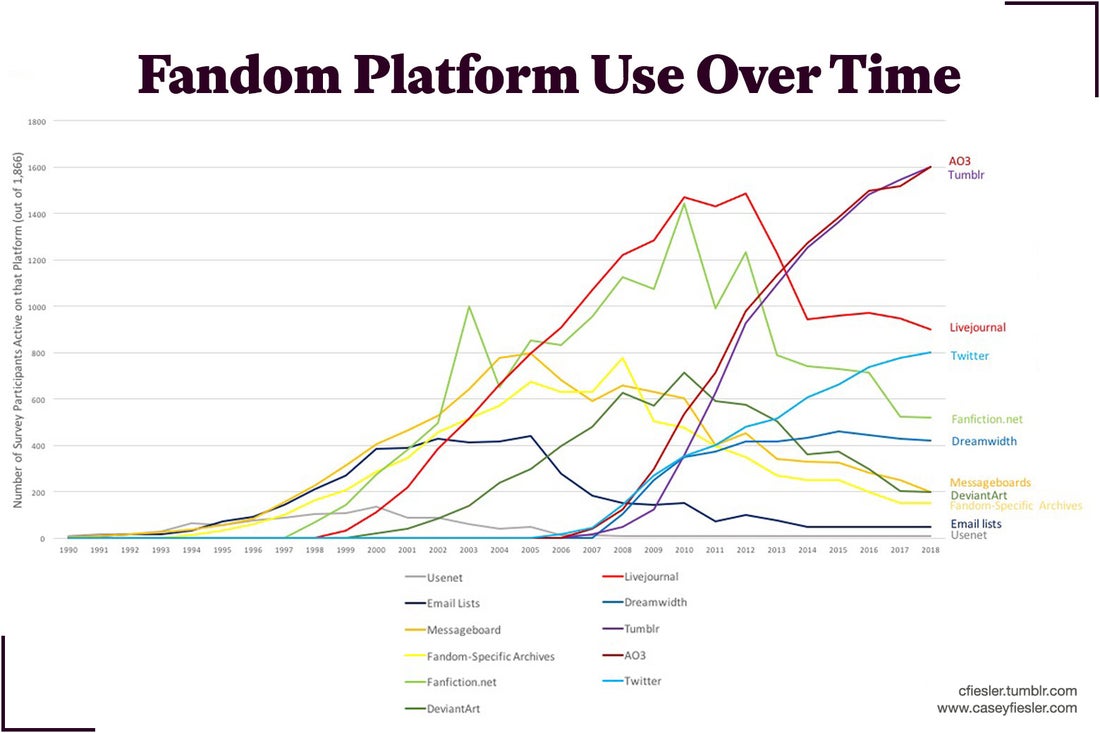

:format(webp)/cdn.vox-cdn.com/uploads/chorus_image/image/59158541/474099442.jpg.0.jpg)

